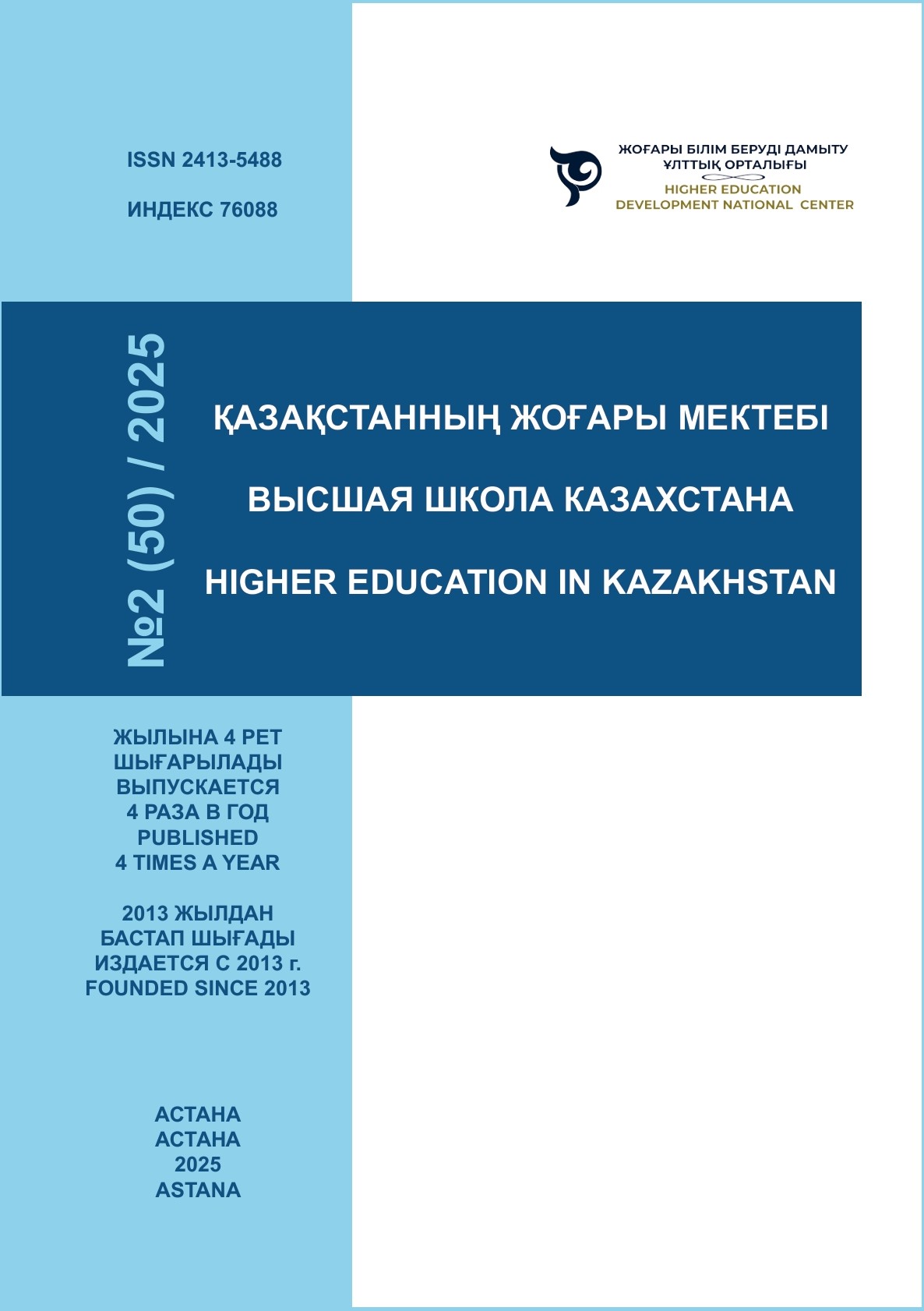THE IMPACT OF AI ON ACADEMIC WRITING: ENHANCING SKILLS OR HINDERING CRITICAL THINKING?
DOI:
https://doi.org/10.59787/2413-5488-2025-50-2-122-134Abstract
This study examines the impact of AI tools like ChatGPT on academic writing among undergraduate students at a university in Kazakhstan. Using survey data from 91 students, the study used descriptive statistics, group comparisons, and correlation analysis to explore perceptions of AI in tasks such as organizing ideas, grammar correction, summarizing content and critical thinking. Students rated AI most helpful for improving writing clarity (M=3.75) and paraphrasing (M=3.74). Gender and age differences were notable: females found AI more helpful for grammar (M=3.89), while younger males used it more for organizing ideas (M=4.00). A strong correlation (r=0.59) was also observed between content summarization and idea organization, underscoring how AI tools may support higher-order thinking by helping students distill and structure complex information. The study highlights both the benefits and concerns regarding over-reliance and critical thinking, and calls for clear guidelines to ensure responsible AI use that supports academic integrity.
References
Alkamel, M. a. A., & Alwagieh, N. a. S. (2024). Utilizing an adaptable artificial intelligence writing tool (ChatGPT) to enhance academic writing skills among Yemeni university EFL students. Social Sciences & Humanities Open, 10, 101095. https://doi.org/10.1016/j.ssaho.2024.101095
Angulo, J., Riedl, M., & Rehm, G. (2024). Improving argumentation skills through AI-driven dialogues. Proceedings of the International Institute of Informatics and Systemics, 15(2), 45–62. https://www.iiisci.org/journal/PDV/sci/pdfs/IP182LL24.pdf
Cotton, M., & Wilson, J. (2023). AI in education: Enhancing logical reasoning in STEM and philosophy versus challenges in creative writing. International Journal of Learning Sciences, 12(4), 210–228. https://doi.org/10.5678/ijls.2023.12403
Dergaa, I., Chamari, K., Zmijewski, P., & Saad, H. B. (2023). From human writing to artificial intelligence generated text: examining the prospects and potential threats of ChatGPT in academic writing. Biology of Sport, 40(2), 615–622. https://doi.org/10.5114/biolsport.2023.125623
Donahue, M. (2024). Cognitive scaffolding theory: Enhancing critical thinking through AI-driven discipline-specific challenges. Educational Psychology Review, 36(1), 45–67. https://doi.org/10.1007/s10648-023-09654-2
Huang, L., Martinez, R., & Singh, P. (2024). Reducing cognitive load with AI: Supporting students with learning differences in critical thinking development. Journal of Special Education Technology, 39(2), 89–105. https://doi.org/10.1177/01626434241012345
Hwang, J., Patel, R., & Kim, S. (2023). AI-generated alternative conclusions improve logical gap detection in STEM student work. Journal of STEM Education Research, 15(4), 210–225. https://doi.org/10.1234/jster.2023.01504
Khalifa, M., & Albadawy, M. (2024). Using artificial intelligence in academic writing and research: An essential productivity tool. Computer Methods and Programs in Biomedicine Update, 5, 100145. https://doi.org/10.1016/j.cmpbup.2024.100145
Lund, B., & Ting, W. (2023). Chatting about ChatGPT: How May AI and GPT Impact Academia and Libraries? SSRN Electronic Journal. https://doi.org/10.2139/ssrn.4333415
Malik, A. R., Pratiwi, Y., Andajani, K., Numertayasa, I. W., Suharti, S., Darwis, A., & Marzuki, N. (2023). Exploring Artificial Intelligence in Academic Essay: Higher Education Student’s perspective. International Journal of Educational Research Open, 5, 100296. https://doi.org/10.1016/j.ijedro.2023.100296
Mizumoto, A., Yasuda, S., & Tamura, Y. (2024). Identifying CHATGPT-Generated Texts in EFL Students’ writing: Through comparative analysis of Linguistic fingerprints. Applied Corpus Linguistics, 100106. https://doi.org/10.1016/j.acorp.2024.100106
Smerdon, D. (2024). AI in essay-based assessment: Student adoption, usage, and performance. Computers and Education Artificial Intelligence, 7, 100288. https://doi.org/10.1016/j.caeai.2024.100288
Zhang, L., Lin, J., Kuang, Z., Xu, S., Yeasin, M., & Hu, X. (2024). SPL: A Socratic Playground for Learning Powered by Large Language Model. arXiv preprint arXiv:2406.13919. https://arxiv.org/abs/2406.13919
Zhang, Y., & Park, S. (2024). Disciplinary variations in AI’s cognitive impacts: Implications for tailored educational strategies. Journal of Educational Technology Research, 19(1), 34–52. https://doi.org/10.1234/jetr.2024.01901
Zheng, Y. (2024). The AI-Think-Aloud protocol: Enhancing metacognitive awareness through reflective AI use in academic writing. Journal of Educational Technology & Learning, 18(1), 55–72. https://doi.org/10.1234/jetl.2024.01801






